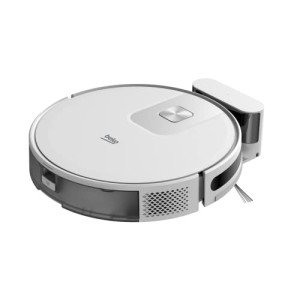What's The Reason Everyone Is Talking About Robot Vacuum Cleaner Comparison Right Now
Robotic Vacuum Cleaner Comparison: The Future of Home Cleaning
In recent years, robotic vacuum cleaners have transformed the method we maintain tidiness in our homes. With advancements in technology and the incorporation of artificial intelligence, these devices have actually developed from mere novelty items to important family appliances. This article provides a thorough comparison of some of the leading robotic vacuum on the market, helping consumers make notified choices when selecting a design that fits their requirements.
Comprehending Robotic Vacuum Cleaners
Robotic vacuum are autonomous devices created to tidy floors immediately. Geared up with sensors, they browse around barriers and change their cleaning routes for optimal effectiveness. The essential functions that separate various models include suction power, battery life, app connectivity, navigation technology, and price.
Secret Features to Consider
When comparing robotic vacuum cleaners, prospective buyers must take into account the following aspects:
- Suction Power: Measured in Pascals (Pa), suction power figures out the effectiveness of selecting up dirt and particles.
- Battery Life: The length of time a vacuum can run before needing a recharge substantially affects its cleaning performance.
- Navigation Technology: Models may utilize basic random navigation or sophisticated mapping technologies (like LIDAR) that allow them to create a map of the home.
- Smart Features: Connectivity to smartphone apps or smart home systems can boost use and control.
- Filter Type: HEPA filters are suggested for allergic reaction victims, as they trap irritants and enhance air quality.
Comparison of Top Robotic Vacuum Cleaners
Below is a comparison table of a few of the best robotic vacuum cleaners available in 2023:
Model
Suction Power (Pa)
Battery Life (min)
Navigation Technology
Smart Features
Price (GBP)
iRobot Roomba i7+
1700
75
Smart mapping
App control, voice command
₤ 949
Roborock S7
2500
180
LIDAR
App control, multi-floor
₤ 649
Neato D7
2000
120
LIDAR
App control, zone cleaning
₤ 599
Ecovacs Deebot T10
3000
150
Smart mapping
App control, space detection
₤ 799
Shark IQ Robot
1200
90
Random
App control, self-emptying
₤ 399
Explanation of the Table
iRobot Roomba i7+: Known for its robust cleaning capability, it includes smart mapping innovation that allows it to designate specific areas for cleaning. Its self-emptying function is a plus for convenience.
Roborock S7: This model excels in suction power and battery life, making it perfect for larger homes. Its LIDAR technology helps produce an effective cleaning course, and it can vacuum and mop all at once.
Neato D7: The D-shape design permits much better corner cleaning, and it includes strong suction power. Its LIDAR navigation enables it to draw up cleaning locations accurately.
Ecovacs Deebot T10: Boasting the highest suction power and advanced navigation, this design can deal with multiple floors effectively. It's a versatile option for households with differing floor types.
Shark IQ Robot: An affordable choice that still provides smart features. Its self-emptying capability and app combination make it a practical choice for those looking for a strong cleaning companion without breaking the bank.
Benefits of Robotic Vacuum Cleaners
Robotic vacuum cleaners provide numerous benefits that add to their increasing popularity among customers:
- Time-Saving: Automated cleaning allows users to maximize important time that can be invested on other activities.
- Convenience: Many models can be arranged through apps to clean at specific times, minimizing manual effort.
- Availability: They can reach under furnishings and in tight areas where conventional vacuums may have a hard time.
- Daily Maintenance: Regular use of robotic vacuums can help preserve a regularly clean environment, promoting better general home health.
Frequently Asked Questions About Robotic Vacuum Cleaners
1. How frequently should Best Robot Vacuums run my robotic vacuum?
It is recommended to run the robotic vacuum a minimum of 2-3 times a week to keep tidiness, though day-to-day use can be useful, particularly in homes with animals or high foot traffic.
2. Do robotic vacuums work on carpets?
Yes, numerous robotic vacuums are created to deal with carpets, however efficiency might vary based upon the model's suction power and brush type. Try to find designs particularly discussed as effective for carpets.
3. Can robotic vacuums clean family pet hair?
A lot of robotic vacuums can efficiently choose up pet hair, however those with strong suction and tangle-free brush styles are particularly appropriate for this task.
4. How do I preserve my robotic vacuum?
Regular upkeep consists of cleaning the brushes and sensing units, emptying the dustbin, and sometimes changing filters to make sure optimal performance.
5. Are robotic vacuums worth the investment?
While they tend to be more pricey than traditional vacuums, the convenience, efficiency, and time-saving elements make them a worthy financial investment for lots of families.
The marketplace for robotic vacuum cleaners continues to expand as technology develops, providing consumers a variety of alternatives to suit various cleaning needs and spending plans. By carefully considering functions such as suction power, battery life, and smart abilities, users can select a design that aligns with their way of life. Whether for convenience, ease of use, or exceptional cleaning performance, robotic vacuums are undoubtedly improving the future of home cleaning.
